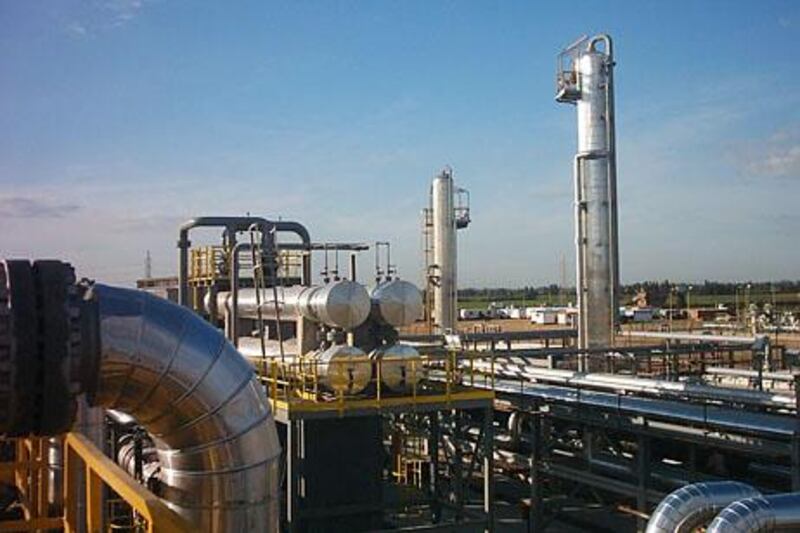Dana Gas has reached a preliminary deal with creditors to restructure its US$1 billion (Dh3.67bn) Islamic bond.
The "in-principle" deal, signed late on Monday night by the Sharjah fuel producer and a committee of bondholders, would have the company pay back creditors partly with cash, then split the remaining debt into an ordinary sukuk and a convertible Islamic bond that would convert to shares after a set period.
The $80 million of the sukuk owned by Dana Gas would be cancelled.
"It's good news because it will give Dana a breather," said Haissam Arabi, the chief executive of Gulfmena Investments in Dubai. "Creditors and bondholders get something out of it."
The exact terms of the restructuring remain to be negotiated and need approval from bondholders and shareholders.
Dana Gas missed repayment of the sukuk on October 31 when a three-day grace period began. A standstill agreement with a bondholder committee brokered early last month has allowed discussions to progress since then.
There has been no formal declaration of default despite missing those deadlines.
For the restructuring to be given the green light, at least 51 per cent of bondholders must meet and 75 per cent of those present would have to grant approval.
Shareholders, whose quorum is more flexible, can approve the deal with a simple majority. Meetings have yet to be scheduled.
The main point of contention will be the convertible bond, which offers bondholders the prospect of an equity stake in Dana Gas but could dilute existing shareholders.
"As investors, I would wait and see what kind of conversion terms are on the bonds - is it mandatory, who controls it, whether it is the lender," said Nabil Farhat, a partner at Al Fajer Securities in Abu Dhabi. "That's why the price isn't reacting so much on the latest news."
Shares rose yesterday more than 4 per cent to 43 fils, although values remained at less than a tenth of their highs after a 2005 initial public offering.
The company had Dh516 million of cash on hand as of September, according to its latest financial statement. It made an agreed profit payment to creditors of $18.7mat the end of last month.
The company has faced cash-flow issues in its main concessions in Egypt, where a political revolution put a stop to payments for gas production, and in Iraqi Kurdistan, home to a dispute between the regional Kurdish government and Baghdad over hydrocarbon payments.
A deal signed with Iran's national oil company to pump gas to the UAE has not yielded any concrete results. The Egyptian government recently began compensating Dana Gas for current production and was paying down its backlog of missed payments, while a deal in Iraq was expected to allow international producers to be reimbursed for expenses.
Shehab Gargash, the chief executive and managing director of Daman Investments, said he was encouraged by the "healthy" debate taking place about the missed sukuk payment.
"The other way of doing it would be to force something or do something without proper transparency," he said. "With other companies we've seen a lot of that kind of heavy-handedness, and that's not healthy."
[ ghunter@thenational.ae ]
* Hadeel Al Sayegh contributed reporting





